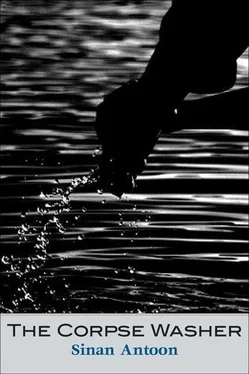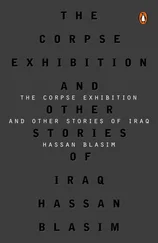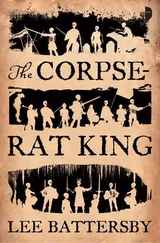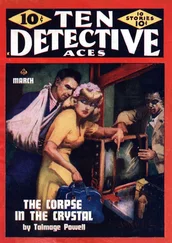Father rarely mentioned my uncle Sabri, who was eight years his junior. The few times the topic of Communists and their clashes with Ba’thists came up, he would say: “Sabri’s people.” Uncle Sabri used to visit us every now and then when I was a kid and would sleep on the floor of the guest room. He was a jovial man who always filled my pockets with sweets and played soccer with Ammoury and me in the street in front of our house. He was obsessed with the al-Zawra’ team and he told me that I, too, would one day become a Zawra’ fan. He was right.
The first time I attended a soccer match was with him. I was only eight years old. We went to the opening game of the national league season. I don’t remember why Ammoury didn’t come with us that day. It was scorching hot and there were throngs of people when we got out of the car at the Sha’b stadium. After standing in a long line, my uncle bought two pink-colored tickets for the south of the stadium. Then we stood in another line with lots of pushing and shoving to get inside. A man standing at the gate tore the two tickets in half. We made our way in and climbed to our seats in the bleachers.
The seats were beginning to fill up with fans. Some of them sang and others were beating drums. Uncle Sabri chose a spot high up, next to a group of fans carrying the white flags of Zawra’. From that spot, the field looked like a beautiful green rectangle. My uncle spread newspapers on the concrete seats and we sat down and waited for the game to start.
When the al-Zawra’ players emerged from the underground locker rooms wearing their traditional white jerseys, everyone got up. The stadium filled with applause and cheers. Uncle Sabri lifted me high so I could see. The entire team stood in the middle circle, and the players raised their arms to salute the fans on the opposite side. Chants rose. When they turned around and faced us, the applause grew even stronger. They took the field, warming up, passing balls to each another or taking shots on goal. I saw a group of photographers surrounding a bald player wearing the number eight. I asked my uncle about him. “That’s Falah Hasan, the fox of Iraqi soccer,” he said.
Suddenly I heard everyone around us booing and someone yelled: “Tayaran are sacks.” I figured that they were heckling the opponent, Tayaran, who wore blue. But I couldn’t understand “sacks.” My uncle explained: “It means we will score so often they will be like sacks full of goals.” My uncle put his hand on my head and stroked my hair saying: “You are a diehard Zawra’ fan already.”
After a scoreless first half, Falah Hasan scored with a header in the first few minutes of the second. My uncle was ecstatic and lifted me again so I could see the players hugging one another. But our joy was short-lived, because Tayaran equalized with a penalty kick. The game ended in a draw, and my uncle called the referee blind: the Tayaran striker had faked being fouled to win the penalty kick, he said. The fans chanted “Zawra’, Zawra”’ as we left the stadium. We walked to al-Andalus Square to catch a bus back to Kazimiyya.
I was still excited after the match and told my parents all about it and about the stadium. Father got fed up and said “Enough! You are giving me a headache with your Zawra’. God!”
My uncle took me to Zawra’ games many times, and once he took me to Madinat al-Al’ab park. He and Father loved each other, but sometimes they would argue passionately about things I couldn’t understand. I was ten when he visited us the last time. He would always hug and kiss me upon arrival and departure. But that time I glimpsed a sadness and clouds in his eyes when he kissed me goodbye, saying: “Don’t forget your uncle.”
“No, I won’t forget you, but don’t you forget me,” I responded.
He laughed and kissed me again on my forehead. He hugged everyone tightly, especially Father.
Afterward, I asked Father about my uncle. He said that Sabri had gone to Beirut. I missed him and asked often when he would return. My mother would say, “He can’t. He’s busy there.” I would ask about his work and when he would be finished. She never gave a straight answer, sometimes saying, “Ask your father.” But Father evaded my questions too. Months later, while doing my homework, I heard on the nightly news that a number of Communist officers in the army had been executed. I heard Father tell my mother, “That’s the fate of Sabri’s people. They won’t leave any of them alive. Thank God he escaped.” I understood then that Uncle Sabri was a Communist. I asked Father, “What does it mean, being a Communist?”
“None of your business, son.”
“Uncle Sabri’s a Communist?”
He shushed me. “Stop asking questions. I told you it’s none of your business.”
When my brother Ammoury came back home, I asked him about Uncle Sabri and what communism meant. He said the Communists and Ba’thists were sworn enemies and Uncle Sabri had fled because the regime was arresting Communists. Two years later, when I was in middle school, we were all given papers to fill out to join the Ba’th Party. There were questions about relatives living abroad, and a separate sheet on which to list the names of relatives who belonged to the Communist Party or the Da’wah Party. I wrote in my uncle’s full name: Sabri Hasan Jasim — Communist.
We would receive letters from him once every year or two. He would always include a line for me alone, like “kisses to my handsome Jawad. Is he still a loyal Zawra’ fan cheering on my behalf?” I wrote a letter of my own to him, and we included it in the family letter. I wrote about school and Zawra’s performance in the league and its new star players. I told him that I missed him very much and was waiting for him to come back.
He once called us on the phone to let us know that he was all right. Father was summoned to the directorate of secret police and was interrogated for three hours because of that one call. He wrote to my uncle after that asking him never to call again. I used to think of Uncle Sabri a lot, especially when I heard the news about the civil war in Lebanon. After his letters from Beirut, we received two from Cyprus. Then we heard that he’d gone to Aden, and we received letters with Yemeni stamps on them. He had started working as a teacher there. A civil war erupted there as well, and he had to go to Germany, where he was given asylum. He would send us money from time to time, especially in the late 1990s, when the embargo suffocated us.
After my father’s death I sent a letter to Uncle Sabri in Berlin, at the last address we had for him. I told him that phone lines were all down after the bombing and we had no idea when they would be repaired. One day three months later, my mother was fluttering her hand fan, saying: “We thought the Americans would fix the electricity. How come they’ve only made things worse?” The absurdity of the situation could be expressed only with equal absurdity.
There was a knock at the door, and I quipped, “Maybe that’s the electricity at the door waiting for your permission to come in.” She laughed for the first time in weeks. I looked out the window and saw a white-haired man with sunglasses standing at the door as a taxi idled. He had turned to the other side so I could see only his back and shoulders. I went to the door and asked, “Who is it?” “Sabri,” he said. “Open the door. It’s Sabri.”
The years had turned his hair white, leaving only some darker ash on his sideburns and eyebrows. I yelled in disbelief: “Uncle Sabri!” He hugged me tight and laughed: “Oh my, Jawad. You’re taller than I am.” We both cried as we kissed each other seven or eight times. He held my face in his hands as he used to do so often two decades before and repeated my name “Jawad” as if he, too, was in disbelief. My mother came to the door and said, “I can’t believe it. I can’t believe my eyes.”
Читать дальше












